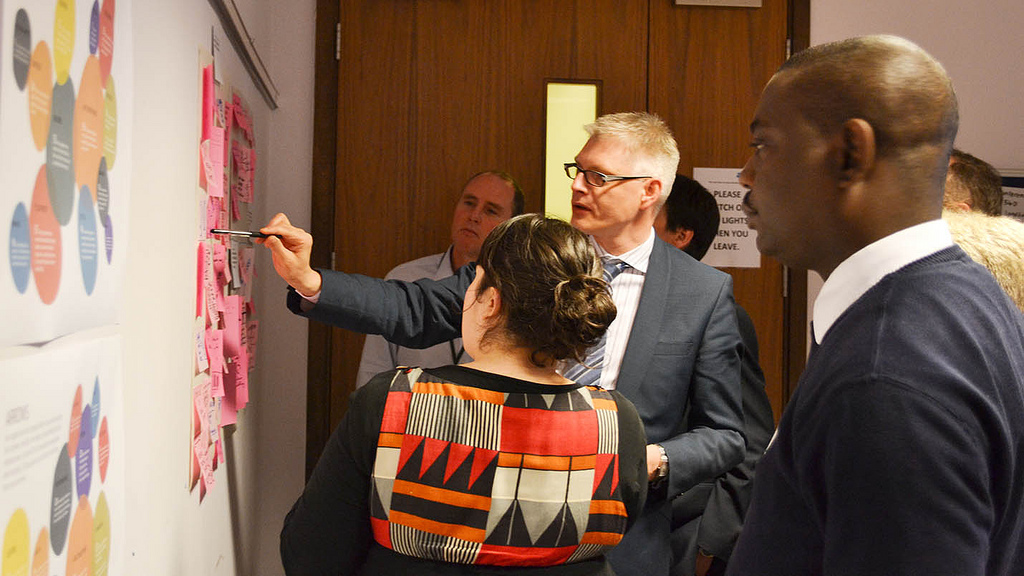
Written for the CarbonCulture blog
Designing with the user
We’ve taken the view that any approach to behaviour change needs to be done in a human-centred, participatory way: designed with the people who are going to be using the systems we design, rather than remotely. So the design is not about just ‘adding’ information flows or gamification, for example, but co-designing these approaches with stakeholders, and adapting and refining them to make them more effective.
Experts on workplace behaviour and social practices, such as Adrian Leaman, Bill Bordass, Mindy Hadi, Heather Chappells, and Elizabeth Shove have highlighted that people do many things in the workplace which don’t necessarily accord with the assumptions made by architects and planners, but which nevertheless have an impact on energy use.
Discovering some of these behaviours, understanding the contexts in which they occur—and what could be done to influence them—has been a key part of the CarbonCulture development process. We’ve involved the whole range of building users, including facilities managers, and other staff members from different departments, job functions, and levels of seniority.
The involvement is not simply about focus groups, but a degree of ethnographic ‘embeddedness’, with CarbonCulture designers spending time working in the same environment as the stakeholders, interacting with users and observing behaviour from within.
In subsequent posts, we’ll be explaining some of our process—and the results.
